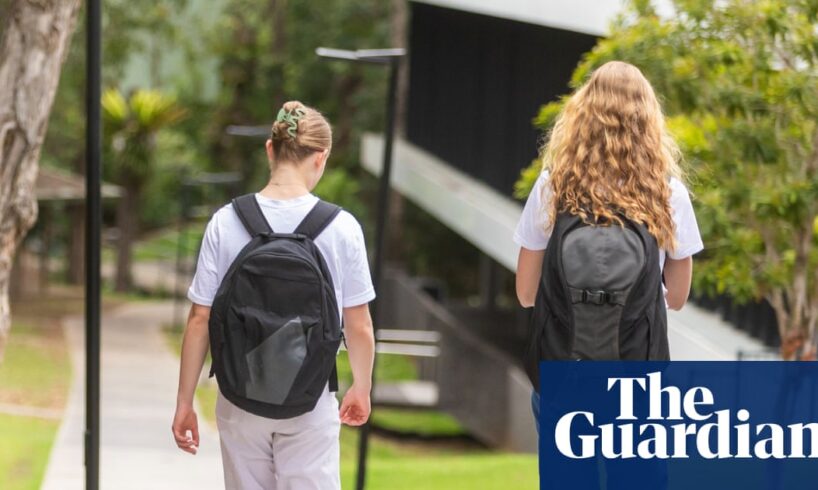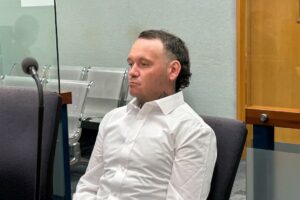
Young Australians may endure worse lives than their parents, the nation’s productivity chief has warned.
Danielle Wood, chair of the productivity commission, said young people are facing a future of lower wages, increased costs and the impacts of climate breakdown without major government action to tackle major economic challenges.
Wood also urged the government to not put new regulations on AI, claiming existing rules on fraud, safety and discrimination are already sufficient – an argument running counter to human rights experts and unions calling for greater protections against abuse and for workers.
On the eve of the Albanese government’s economic reform summit, with its key focus on productivity, Wood will address the National Press Club in Canberra on Monday.
She said Australia must adopt a “growth mindset” and boost productivity to solve looming problems for future generations, saying it was “the only way to sustainably lift wages and opportunities over time”.
“Overwhelmingly, young people today believe they won’t live better lives than their parents did. As chair of the Productivity Commission, I’m worried too,” Wood will tell the Press Club, according to a speech notes released ahead of the address.
Sign up: AU Breaking News email
Wood’s speech blames recent Australian governments for key challenges facing young people, pointing to “policy choices” for house prices growing faster than incomes, and claiming politicians have “for so long avoided the lowest cost policy choices” in dealing with climate change.
Wood will say that productivity comes from better skills and training, new technologies, and policy settings making it easier to switch jobs or run a business. The commission has, in the lead up to the roundtable, released several major reports suggesting changes to tax settings, workforce issues and training, and technology among others.
Amid criticism of the summit before it had even been held, the treasurer, Jim Chalmers, maintained the exercise had already been a success, claiming it had helped focus Australians’ attention on productivity and the economic challenges faced by the government.
The Productivity Commission chair, Danielle Wood, will again call on the government to not over-regulate AI. Photograph: Mick Tsikas/AAP
A YouGov survey of 1,500 people, conducted for community organisation Amplify, last week found 73% of Australians either did not know or were unsure about the summit, and only 29% were confident it would lead to meaningful change.
Around two-thirds of people surveyed believed productivity increases would mean people had to work harder, with the benefits going to bosses, but the same percentage believed it would lead to more job opportunities.
“We’ve focused the country on the productivity challenge. We’ve gotten people accustomed to dealing with the economic and fiscal trade‑offs that governments deal with every day,” Chalmers said on Sunday.
skip past newsletter promotion
Sign up to Breaking News Australia
Get the most important news as it breaks
Privacy Notice: Newsletters may contain info about charities, online ads, and content funded by outside parties. For more information see our Privacy Policy. We use Google reCaptcha to protect our website and the Google Privacy Policy and Terms of Service apply.
after newsletter promotion
Among the key issues to be discussed through the roundtable is AI. Business and tech groups have urged the government to embrace a light-touch approach to legislating it, saying over-regulation could stunt the productivity benefits associated with the new technology.
The government is still debating how best to respond to AI, with a diversity of views among Labor voices.
The former industry minister Ed Husic had set out plans for a standalone AI act to regulate the field, while the new minister, Tim Ayres, has spoken about regulation and legislation among plans still to be decided. It is unclear what Labor will settle on.
The commission has set out proposals for how tech, including AI, could be regulated and treated in Australia, suggesting it could add up to $116bn to Australia’s GDP.
However, the commission was strongly criticised last week for suggesting big tech companies be allowed to mine Australian copyright content – including music, literature, art and journalism – to train their AI models, an idea advanced by the Tech Council of Australia and its chair, the Atlassian co-founder Scott Farquharson.
The Tech Council on Monday released its submission to the roundtable, where it again called for “copyright reform” including “narrowly tailored text‑and‑data‑mining exceptions and increased access to high‑quality Australian datasets” to help train AI models.
“Australia’s current copyright frameworks are restricting frontier AI innovation. Training foundation models depends on text and data mining,” the submission read.
Wood’s speech notes contain no repeat of the PC’s controversial suggestion for a copyright carveout, but she will again call on the government to not over-regulate AI.
“While managing the risks is important, we do not think that a new and overarching regulatory framework for AI is the way to go. That’s because the risks posed by AI are mainly existing risks,” she will say.
“AI may make it cheaper, easier and faster for bad actors to create harms, but most of these harms – from product safety, to discrimination, to fraud – are already covered by regulatory frameworks.”





